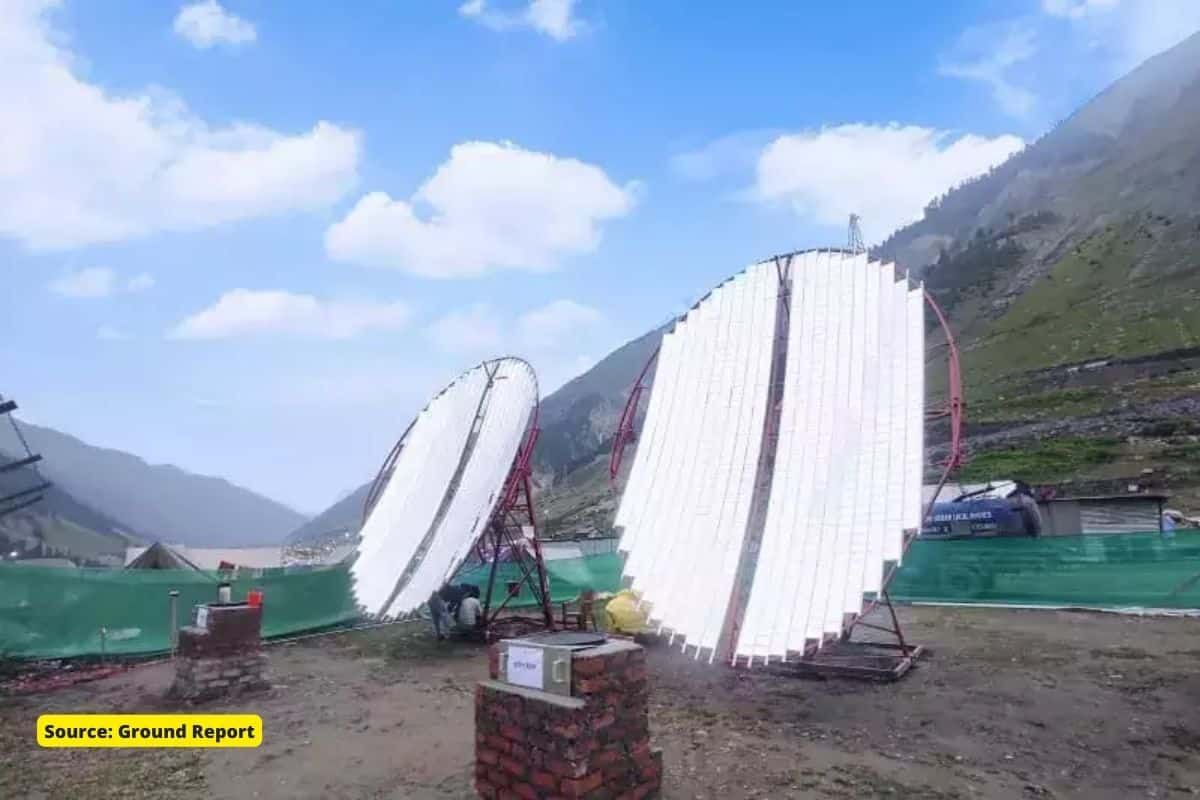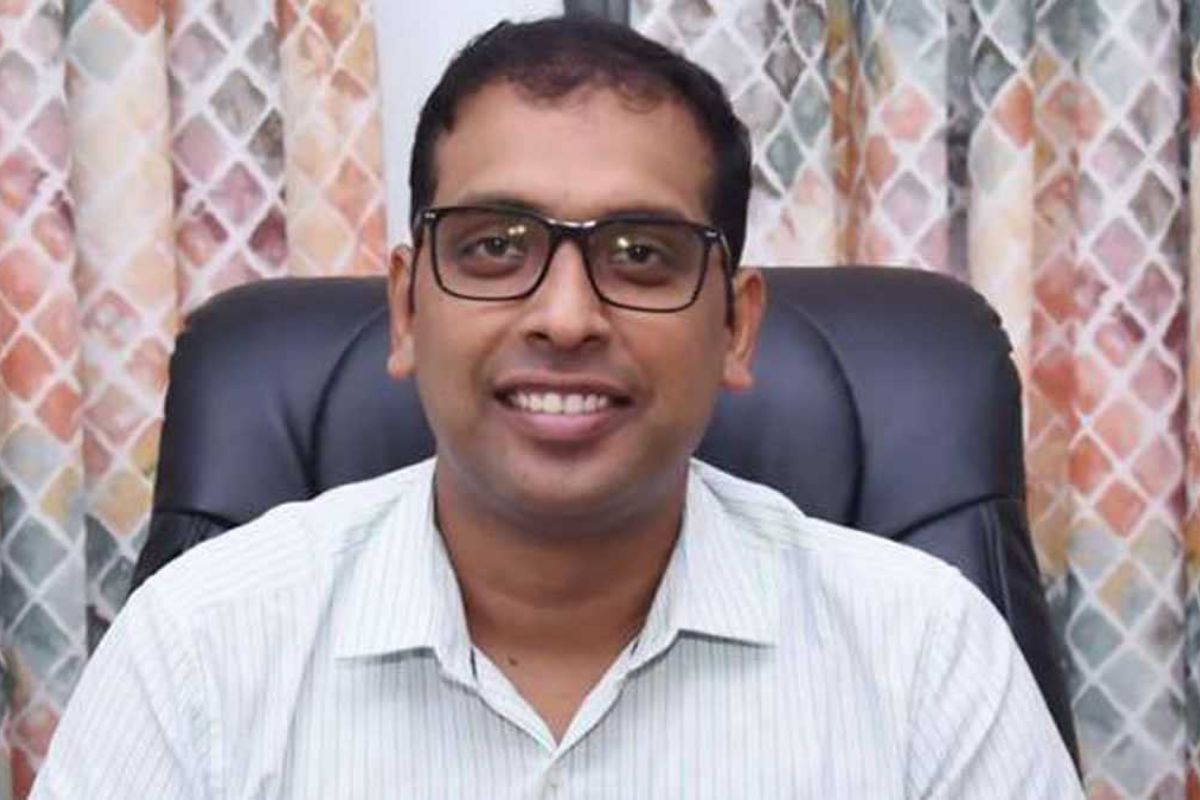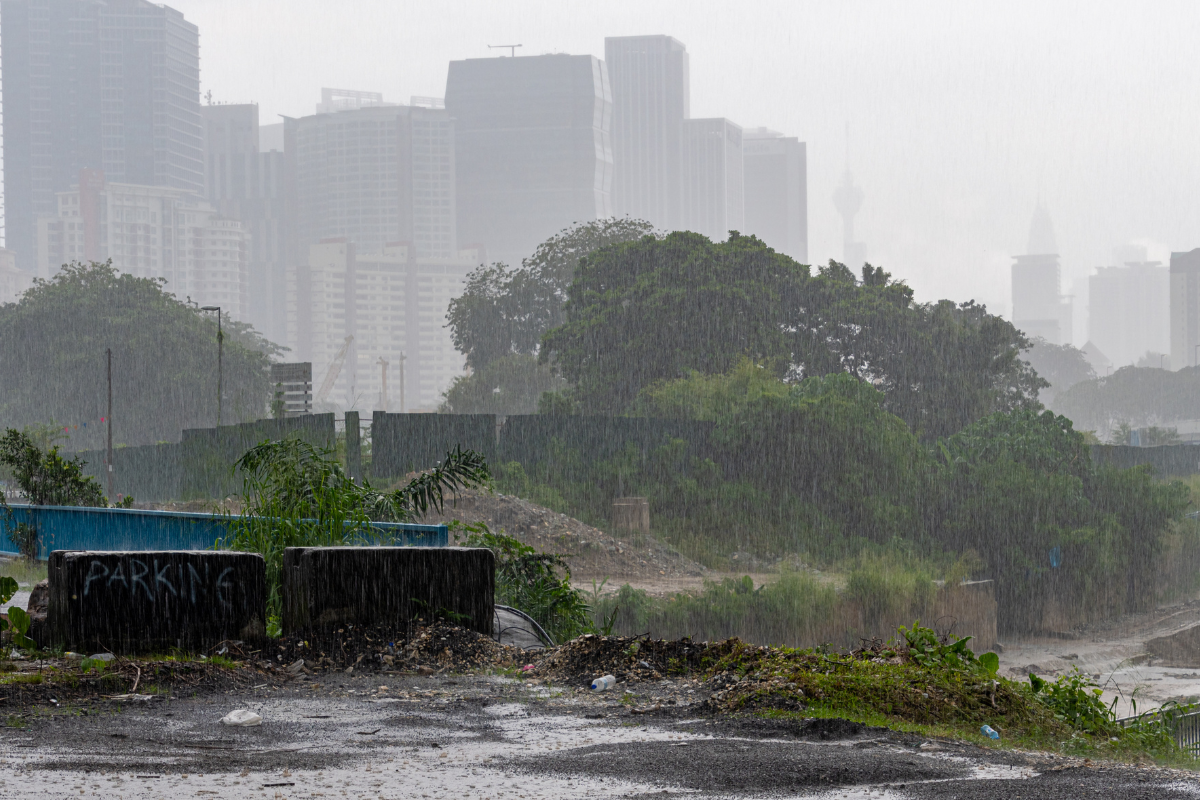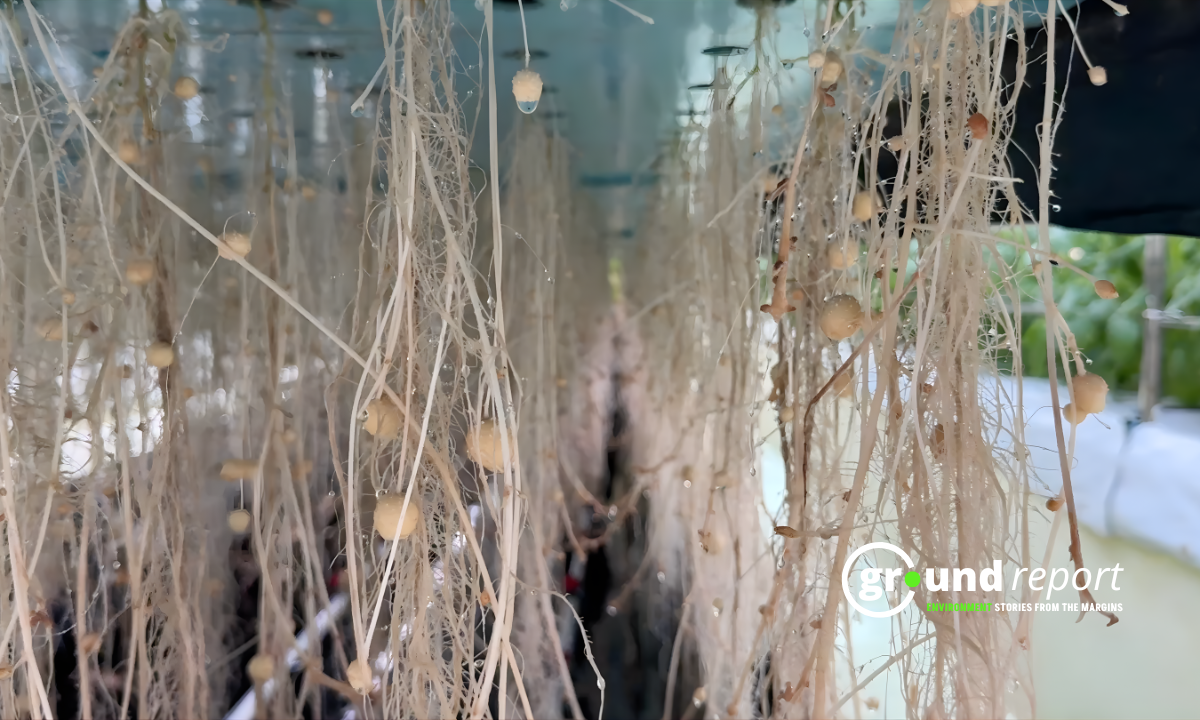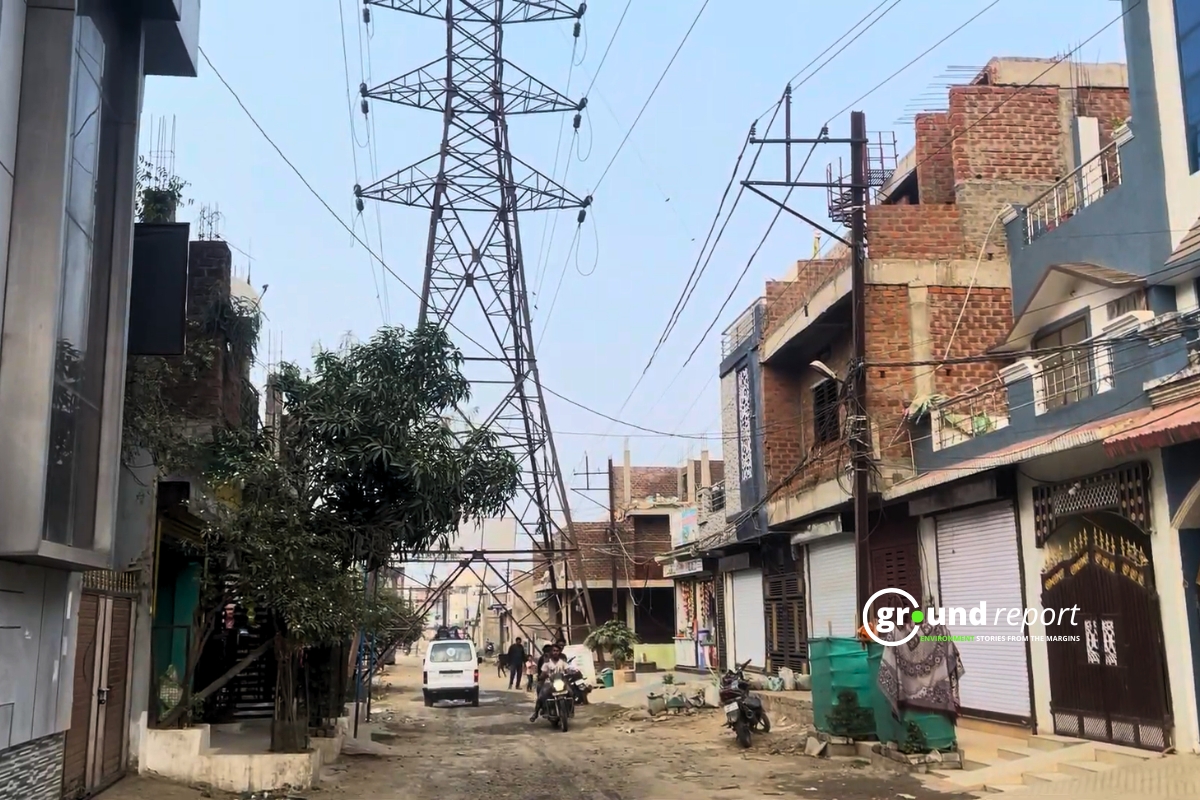For the first time in the history of Amarnath Yatra, Indore-based Start Up ‘Swaha’ has installed parabolic solar concentrators along the Amarnath Yatra route as part of its sustainable solution. It is capable of boiling water, stewing, boiling and cooking lentils, rice, potatoes, Maggi, tea, milk, etc. On this occasion, two of its models, a community kitchen and a domestic model, have been installed in the base camp as an experiment.
The government is also working on a plan to make Yatra smoke-free. They have introduced huge solar-powered pressure cookers around Amarnath road to get rid of the use of LPG and firewood in community kitchens.
In the Amarnath Yatra Base Camp, this time food is being prepared for the pilgrims through a solar concentrator. It has been developed and deployed by a startup named Swaha. Local Kashmiri volunteers are helping team Swaha in the operation and maintenance of this Eco- Friendly cooking solution.
Due to global warming, the size of the Shivling formed from the ice in Amarnath is continuously decreasing. In such a situation, eco-friendly cooking is a necessary step for the well-being of the environment in this high-altitude area. This initiative of the Jammu and Kashmir administration with the help of Swaha is commendable.
The Swaha team, who installed this system, said it is called the Scheffler Solar Dish or Parabolic Solar Concentrator.
In the solar concentrator installed in Baltal, two plates of 16 -16 square meters have been installed. When the sun’s rays hit the glass of these dishes, their reflection is concentrated at a focal point.
Swaha co-founder, Sameer Sharma speaking to Groundreport.in that Solar energy is concentrated in one place, with the help of which you can cook. It has been 20-25 years since this technology came to India but it is being used for the first time on the Amarnath Yatra route.
The government planted it in 4 places in the country. A dish was installed at the Barli Institute in Indore. It was just an institution where the food was also made by solar energy and the water was also heated by it.
This solar concentrator installed in Baltal is a successful design in which the temperature can reach up to 700 degrees.
This time, the responsibility for cleaning up the Amarnath pilgrimage route has been given to the Jammu and Kashmir Rural Development Department and the Panchayat Department.
Sameer Sharma from Swaha said that air pollution increases a lot after Amarnath Yatra, it may be much less after the solar concentrator.
As part of the mission of the United Nations Sustainable Development Goals 20-30, the Government of India is constantly striving to accommodate renewable energy sources and innovations under the framework of sustainable development as soon as possible.
The founders of ‘Swaha’ are three people, two of which are IITians Rohit Agarwal and Jawalant Shah and the CEO is Sameer Sharma. Amarnath Dham Yatra, which started on June 30, not only sees a large number of pilgrims but also sees a large amount of garbage. But the efforts of the Kashmir and Swaha Rural Development Department have begun to bear fruit.
The Jammu and Kashmir government makes sure that the pilgrimage does not impact or affect the environment. More than 300 volunteers have been assigned to collect and treat the waste produced on the different routes.
Around 10 tons of waste is produced every day along the Amarnath Yatra route from both base camps. And this time, the government has made sure that the waste is processed on the spot. The Sanitation Directorate, Department of Rural Development along with IIT Indore start-up ‘SWAHA’ have launched this initiative which could serve as an example for the rest of the country.
“It is a very unique type of program, the first time in India that a particular religious event that is also large in scale is organized in such a way that it becomes a zero-landfill event and a sustainable one. So due to the help and steps taken by Kashmir department of rural development, we have been given the responsibility as a new company, we are from Indore, and it is called SWAHA we make this yatra landfill zero and one sustainable. ” said Sameer Sharma, Director SWAHA.
More than 12 processing units have been placed along the route. Organic waste is composted and inorganic waste is separated and sent to recycling units. “Whatever waste is generated in this yatra, it needs to be treated very scientifically, we have been collecting the waste, we have to process and dispose of it. It will be a great reference point for all these events across the country.” Samer said.
Swaha’s Sameer Sharma says that rubbish of any kind will not be allowed to sit idle on the ground. Every part of the waste will be recycled. The compost made with this waste will be useful for travellers and the local council. Since the passengers were unaware and unprepared for such a campaign, Swaha volunteers are guiding the pilgrims from the base camp itself. Do not carry, use and throw raincoats, plastic bags, spoons, etc. Even if for some reason these things are tipping over, don’t throw them into the mountain.
Support us to keep independent environmental journalism alive in India.
Keep Reading
MP farmers battle stray animals, and sleepless nights to protect crops
Pesticides and agriculture threaten Sarus Cranes at Indore’s Yashwant Sagar wetland
Changing weather patterns impacts soybean crops in the Dewas region of MP
Follow Ground Report on X, Instagram and Facebook for environmental and underreported stories from the margins. Give us feedback on our email id greport2018@gmail.com.
Don’t forget to Subscribe to our weekly newsletter, Join our community on WhatsApp, Follow our Youtube Channel for video stories.
